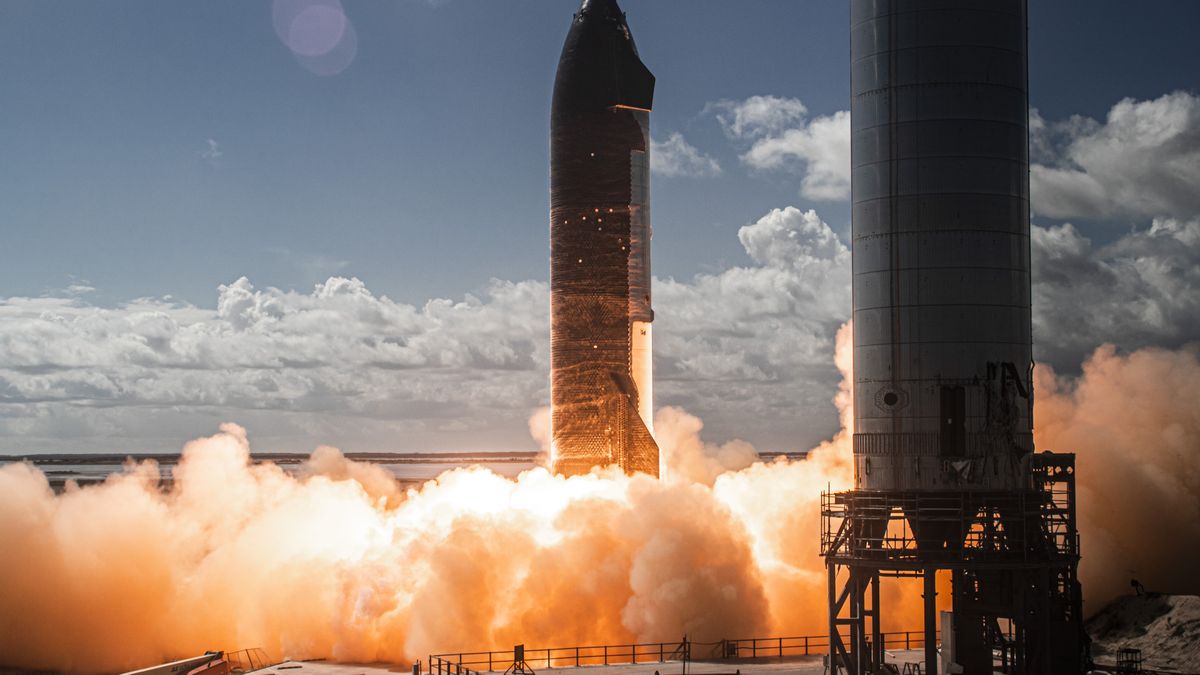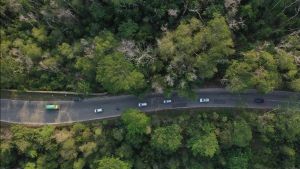JAKARTA – The CEO of SpaceX, Elon Musk, is hopeful that the launch of the Starship into orbit can be done in January 2022. However, the Federal Aviation Administration (FAA) has other plans.
The FAA announced on Tuesday 28 December that it is now issuing its final environmental review on 28 February 2022. The previous date was 31 December 2021.
The change means that SpaceX's Starship cannot be launched until the review is complete.
Steve Kulm, public affairs specialist for the FAA, said in a statement quoted Dailymail.co.uk: 'Under the supervision of the FAA, SpaceX is currently compiling responses to more than 18,000 public comments received on Draft PEA and continues to prepare Final PEA for FAA review and acceptance.'
The assessment looked at the environmental impact of SpaceX's initial mission profile and reviewed debris recovery, local road closures in Boca Chica, Texas, the site of the rocket launch, and other issues.
Elon Musk said last November, following news that the review would end on December 31, that he was eyeing the January schedule for the next Starship launch - the last event taking place on May 15.
The world's richest man, stated during an online meeting hosted by the US government's National Academy, that he is 'comfortable' with the ambitious time frame, but he is not betting on success for the first orbital test flight.
"There are a lot of risks associated with this first launch," Musk said. "So I'm not going to say that it might work, but I think we're going to make a lot of progress."
However, the FAA's announcement last Tuesday forced the mission to be postponed for about two months.
"As previously announced, the FAA has planned to release the PEA Finals on December 31, 2021," the FAA shared in a statement.
"However, due to the high volume of comments submitted on the Draft PEA, discussion and consultation efforts with the consultants, the FAA is announcing an update of the schedule."
Elon Musk himself has had the green light from the Feder Communications Commission (FCC) to conduct an experimental orbital demonstration and recovery test of his Starship rocket in Q1 2022.
The FCC announced on December 9 that test flights were cleared for takeoff starting December 20 - but SpaceX still needs FAA approval to continue with missions.
The Starship program aims to develop vehicles for interplanetary and human cargo travel to the moon, Mars, and beyond.
To perfect the rocket, SpaceX plans to conduct several test launches over the next few years, all of which will require a vehicle operator license or license from the FAA.
While Musk appears to appreciate the FAA's timeline, the billionaire hasn't always been happy with the agency.
In January 2021, he briefly lashed out at the FAA on Twitter for its rules regarding space launches that delayed the launch of SpaceX's Starship Serial Number 9 (SN9) rocket.
"Unlike its aerospace division, which is fine, the FAA's aerospace division has a fundamentally broken regulatory structure," Musk tweeted at the time.
“Their rules are meant for multiple expendable launches per year from multiple government facilities. Under those rules, humanity would never get to Mars."
The FAA has remained silent while Musk has expressed his frustration online, but the division told DailyMail.com in January: "We will continue to work with SpaceX to resolve the outstanding safety issue before we agree to the next test flight."
Although not stated by the FAA, the delay may have been due to SpaceX's earlier test flight of the Starship SN8 which traveled about seven miles into the air and then exploded on the launch pad in what Musk called an "incredible test."
A month later, the FAA announced it would oversee the investigation of the SN9 emergency landing on February 2.
SpaceX eventually launched SN9 for its first altitude test, but the massive rocket was unable to maneuver into a vertical position before landing on the launch pad and detonating on landing.
Musk returned to war with the FAA in July, when the agency warned SpaceX that its environmental review of the new tower at its Boca Chica launch site in Texas was incomplete and the agency could order SpaceX to take the tower down.
With the latest FAA review, the agency will have to determine whether the 'insignificant find' can be issued or it needs to conduct a more intense review - an environmental impact statement that will take Starship even longer to fly.
The English, Chinese, Japanese, Arabic, and French versions are automatically generated by the AI. So there may still be inaccuracies in translating, please always see Indonesian as our main language. (system supported by DigitalSiber.id)










